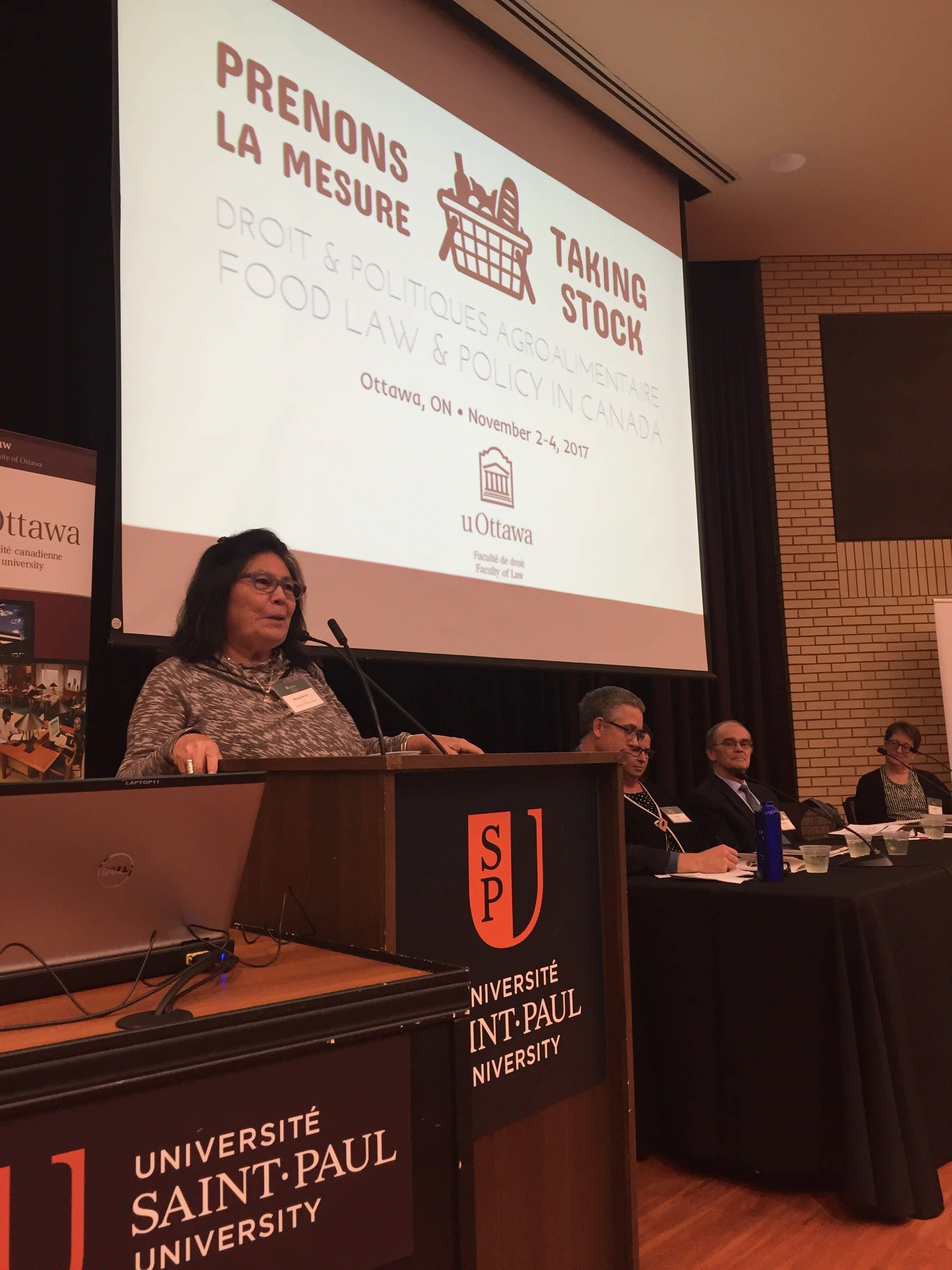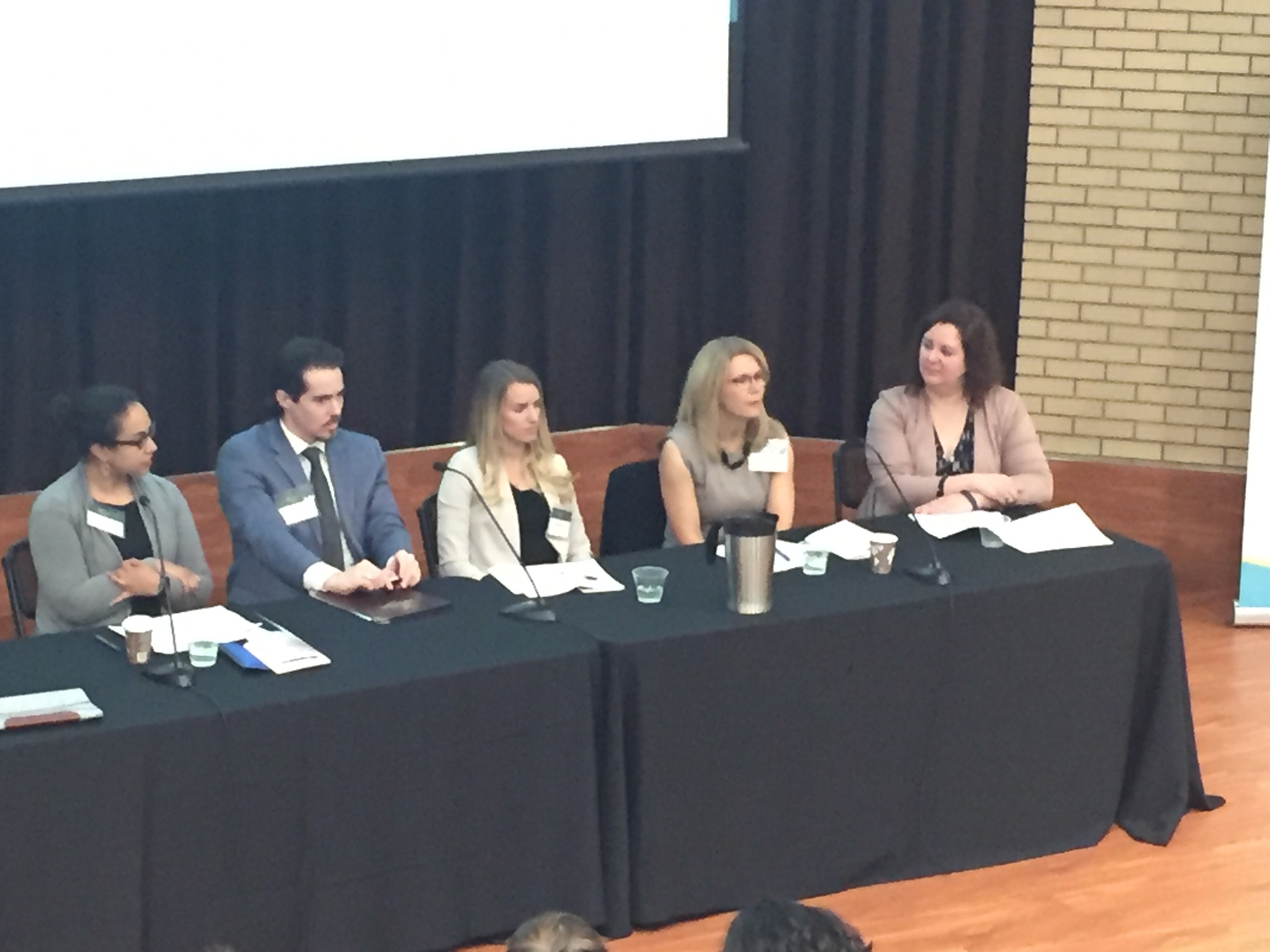Nadia Lambek (SJD Candidate), India Annamanthadoo (1L) & Madeleine Gottesman (1L)*
Have you ever wondered why manufacturers can divide up sugars on a list of ingredients, or why soy milk is sometimes labeled as a soy “beverage”? Do you know why there are no federal animal welfare standards, or why Canada is one of the only developed countries without a national school feeding program? Have you heard of the SAWP or been disturbed by how migrant agricultural workers are treated under the law in Canada? These questions, and other pressing issues in the governance of our food system, were discussed at “Taking Stock: The State of Food Law and Policy”, the second national food law and policy conference in Canada.
From November 2–4, public and private lawyers, legal academics, law students, and others interested in the emerging field of food law and policy came together in Ottawa to take part in three keynote sessions and twenty-two panels with over eighty speakers. Participants had the opportunity to take stock of the various laws and policies that govern the food system—from farm (agricultural inputs, production, processing) to table (transportation, retailing, labelling), and even afterwards (waste management)—and reflect on how to make these laws and policies better.
This year marks a critical juncture for Canada’s food system and the laws and policies that govern it, particularly at the federal level. The Trudeau government, through the Department of Agriculture and Agri-Food, has begun to draft a National Food Policy. Though it is still unclear what this policy will cover, what resources will be attached to it, and what underlying principles will guide it, the policy could be a significant move towards systemically governing the food system. The federal government is also in the process of revising the Canada Food Guide and the Safe Food for Canadians Act, which will have major implications for Canadian producers and consumers.
As these national efforts to govern our food system continue, the 2017 federal budget has set an ambitious target to increase Canada’s agri-food exports to at least $75 billion annually by 2025 (about a fifty percent increase). This year also marks the fifth anniversary of the UN Special Rapporteur on the Right to Food’s assessment of Canada’s food system and recommendations for improving governance to realize the right to food for all, particularly for the roughly four million Canadians that remain food insecure.
Rather than viewing these developments as separate and distinct, conference-goers discussed them together. Participants and speakers were encouraged to examine these legal and policy developments and to think critically about their intersection and impact on consumers, producers, the food insecure, farm animals, the environment, and those who grow our food. For example, panel topics included Indigenous food sovereignty, the impact of new technologies on the food system, feminism and food, food fraud, and the introduction of geographical indications in Canada.


This conference also marked an important moment in the development of the field and practice of food law and policy in Canada. The practice and study of law and policy as it relates to the governance of our food system is largely fragmented. The annual food law and policy conference provides a venue for scholars, lawyers, and students to break out of the silos of their specific areas of study and practice, to think across the food system, and to recognize the connections between their work, cases, and projects. The hope is that the conference will foster cooperation between these parties and help to create better food law and policy. To this end, a national food law and policy organization was launched by participants to serve as a network and a platform for developing the field of food law and policy in Canada.
We are already building a community of people interested in food law and policy here at the University of Toronto Faculty of Law. The newly formed Food Law and Policy Society will be holding a speaker series in 2018, and we hope you will join us. Please contact any of us if you are interested in joining the Society—and look out for our speaker series starting this January!
Further, if you are interested in joining the national food law and policy organization (still to be named) or assisting in the 2018 conference, which will be held at Laval University, please email [email protected]. You can also check out the conference website: www.foodlaw.ca.
*Nadia Lambek was a Conference Co-coordinator; India Annamanthadoo and Madeleine Gottesman were conference volunteers.





